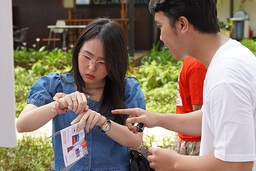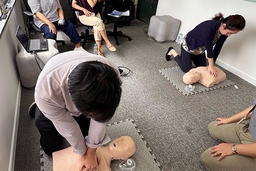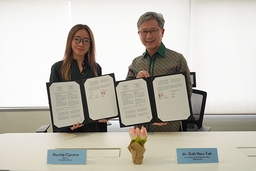GWS Medika and KKLP FK UI Collaborate on "Current Management of UTIs in Primary Care"
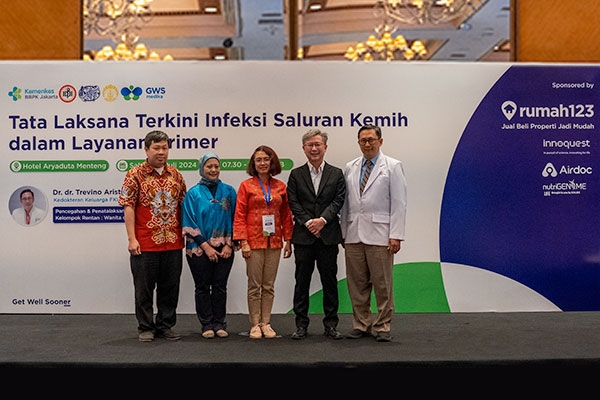
Urinary tract infections (UTIs) are a common health problem, especially for women and the elderly. Symptoms are often not obvious, so there is a risk of complications if not treated properly.
Located in the ballroom of the Aryaduta Hotel, Jakarta, on Saturday (20/7), GWS Medika, in collaboration with Primary Care Family Medicine, Faculty of Medicine, University of Indonesia (FKUI), held a health seminar entitled "Current Management of Urinary Tract Infections in Primary Care."
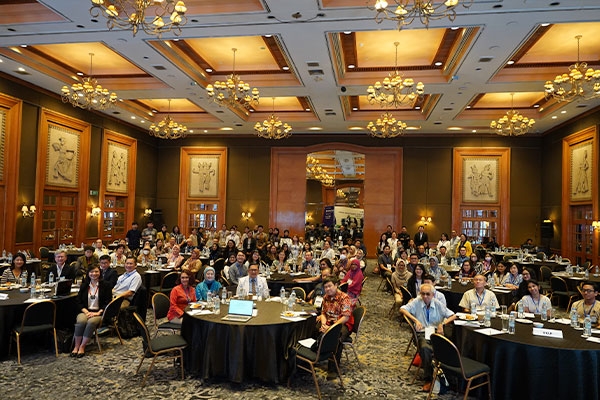
The seminar featured two speakers: Dr. dr. Trevino Aristarkus Pakasi, M.S., a primary care family medicine specialist from FKUI, and dr. Dewi Friska, MKK, SP.KKLP is a teaching staff member from the Department of Community Medicine and a coordinator for research and community service at the FKUI.
dr. Hadiyanto, MKM., Sp.KKLP (Chair of the Indonesian Family Doctors Association (PDKI) Jakarta Branch); Dr. dr. Dhanasari Vidiawati, M.Sc., CM-FM., Sp.KKLP (Chair of the FKUI Primary Care Family Medicine Specialist Study Program), represented by Prof. Dr. Indah S. Widyahening, MS, MSc-CMFM, Sp.KKLP, Ph.D. (Secretary of the FKUI Primary Care Family Medicine Study Program), were present to give a speech at this event.
This event was attended by the Indonesian Family Doctors Association (PDKI) Jakarta Branch, Primary Care Family Medicine Specialist FKUI, PPDS, Dr. John Wang of PanAsia Surgery Group, and Dr. Edward Cheong from PCC (Parkway Cancer Center) Singapore.
Management of UTIs
Dr. dr. Trevino Aristarkus Pakasi, M.S., stated that the time had come to collaborate. Primary care services, such as primary clinics and independent practices, should collaborate with community health centers to improve the prevention and management of UTIs, especially for high-risk populations.
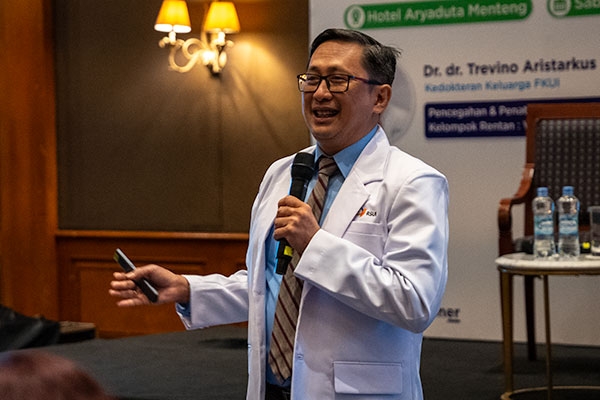
This service is accessible to the public and can reach all ages and genders.
"Our main focus is on primary clinics, community health centers, and independent practices," he explained. "Here, we can reach patients more easily and provide appropriate UTI education and prevention."
UTI prevention starts with healthy people. Women and the elderly must be educated about preventing UTIs, even if the symptoms are not always obvious.
"This education is important for all age groups, from moms and children, children and teenagers, productive age, to the elderly," said Dr. dr. Triveno.
He emphasized the importance of utilizing the guidelines issued by the Ministry of Health to manage UTIs.
"This guideline can be used as an SOP (standard operating procedure) at Pratama clinics," he explained. "By implementing appropriate guidelines and collaborating with community health centers, we can increase the effectiveness of treating UTIs."
Comprehensive treatment and education for UTI prevention
The second speaker was dr. Dewi Friska, MKK, SP.KKLP, teaching staff from the Department of Community Medicine, and research and community service coordinator at the UI Faculty of Medicine. She discussed comprehensive treatment and education on preventing UTIs in families and primary care.
The incidence of UTI is quite high and occurs in vulnerable populations, such as children and the elderly, especially women. In most cases, it is caused by E. coli bacteria.
The incidence of UTIs is highly influenced by various things, including a hygiene and healthy lifestyle and drinking enough fluids. The management also has many approaches. Not only in terms of medicines, but we also have to think about comprehensive management, which begins with prevention.
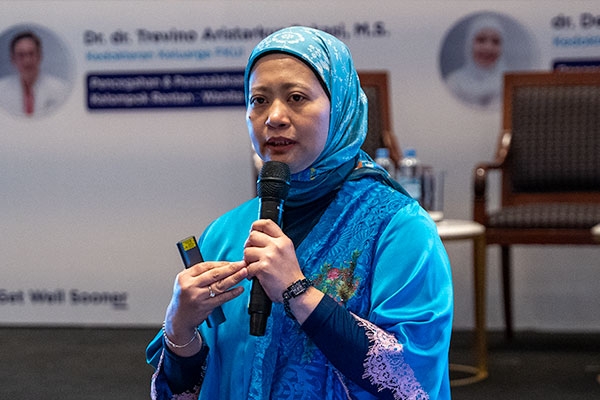
"There are 150 million cases of UTIs worldwide, and women have twice the risk of experiencing a UTI than men. 50% of women experience a UTI before the age of 35. It may be a mild, moderate, or severe UTI." 70% of women experience at least one UTI, and 30% will usually experience recurrent UTIs," she explained.
Menopausal women and the elderly have high-risk factors such as urinary incontinence and hormonal issues. However, young and premenopausal women are also at risk factors from behavioral and activity factors, such as sexual intercourse, spermicide usage, and new sexual partners.
She emphasized that UTIs can affect people of any age, including children and the elderly. “The role of doctors in primary care is crucial because they are at the forefront." Later, it will be linked to UTI education, for example, how to clean the area after urinating, including drinking enough," she added.
At a productive age, UTIs can occur due to frequent delays in urinating. Toilet comfort is also an important thing, besides high productivity.
Symptoms include fever, waist pain, frequent urination, inability to hold urine, cloudy or reddish urine, nausea, vomiting, and weight loss, especially in the elderly.
The level of severity also varies if it is not managed, prevented, and diagnosed early.
“Symptoms are not only checked by diagnosis but also by USG or urinalysis. When recommending that a patient undergo a urinalysis (complete urine check), we should tell the patient to excrete a small amount of urine, not collect it, and once it comes out, collect it. "This is to prevent bacterial contamination," explained dr. Dewi.
She concluded the discussion by emphasizing the importance of primary services. Understand when to refer and implement comprehensive management that is patient-centered, family-focused, and community-oriented."

